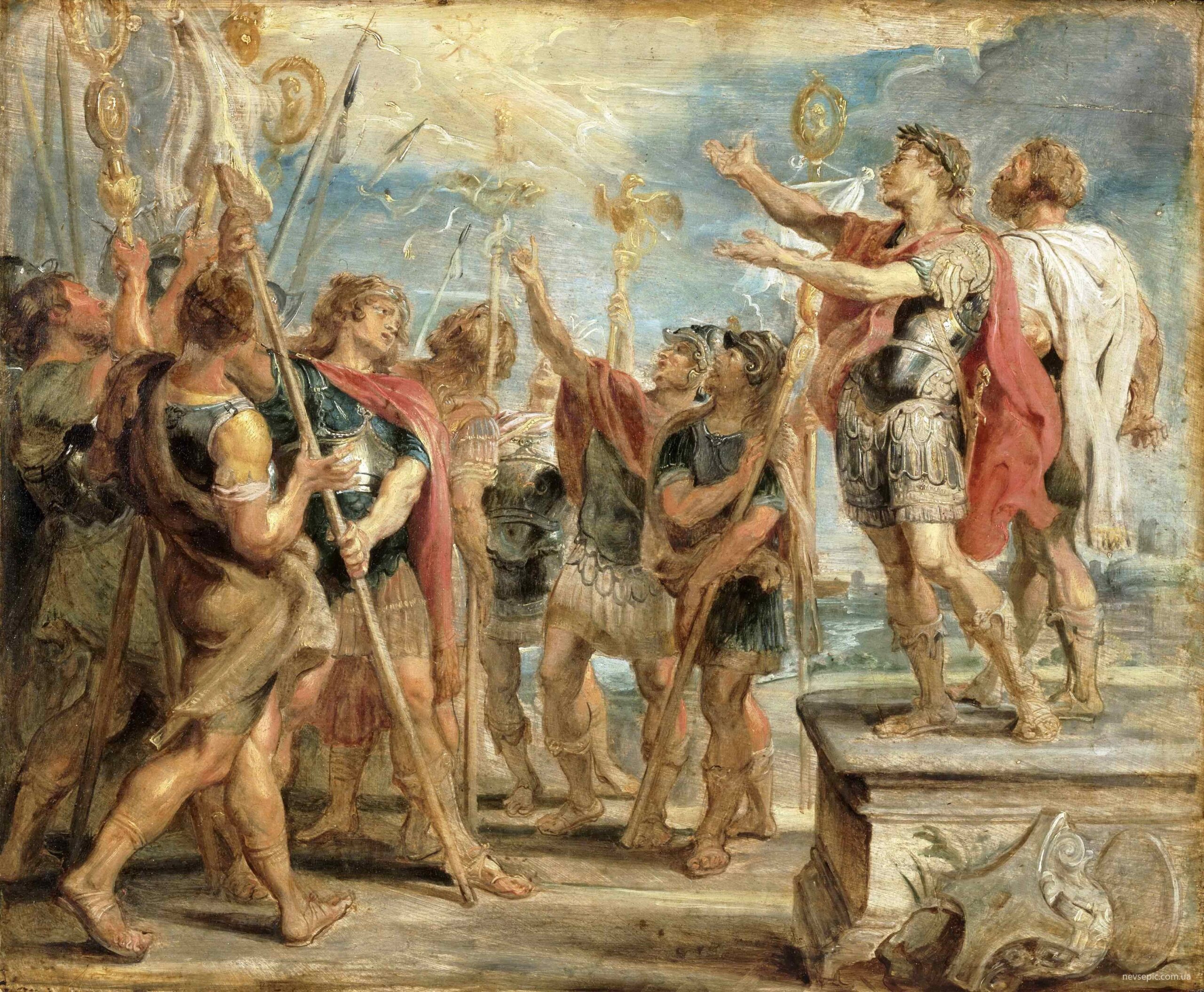Roman Emperor Constantine I issued a decree declaring Sunday a civil day of rest. He called Sunday the ‘venerable day of the sun’. The impact of this decree ensured that markets and public offices were closed on Sundays, though rural populations were permitted to work in their fields. Sunday was sacred to Christians as the day of Christ’s resurrection, but for the pagans it was also a sacred day dedicated to the Roman god Sol Invictus.
This law marked a departure from the Jewish tradition of observing the Sabbath on Saturday. Although Constantine’s desire was for Romans to observe the Lord’s day of rest, he also sought to honour the Sabbath.
Constantine the Great was born circa 272 and ruled from 306 to 337. He was the first Roman emperor to convert to Christianity, which he did after the Battle of the Milvian Bridge in 312. According to Eusebius’ Life of Constantine, on the night before the battle the emperor saw a vision of a ‘cross-shaped trophy formed from light’ with an inscription attached: ‘By this conquer.’ The following year, he issued the Edict of Milan, which established religious toleration for Christianity in the Roman Empire. Both events were turning points for early Christianity. However, Constantine continued to mint coins honouring Sol Invictus, the invincible sun god, as late as 320.
The long-term consequences of Constantine’s edict were significant, marking an important step in the Christianisation of the Roman Empire, including by officially recognising Sunday, the Christian day of worship, as a day of rest. While the edict did not explicitly mention Christianity, it aligned with Christian practices and helped establish Sunday as the primary day of worship. It strengthened Christian influence in imperial policies, contributing to the later dominance of Christianity in the empire.
Additionally, the Edict played a role in shaping the modern practice of the seven-day week with a dedicated day of rest in many cultures around the world.

